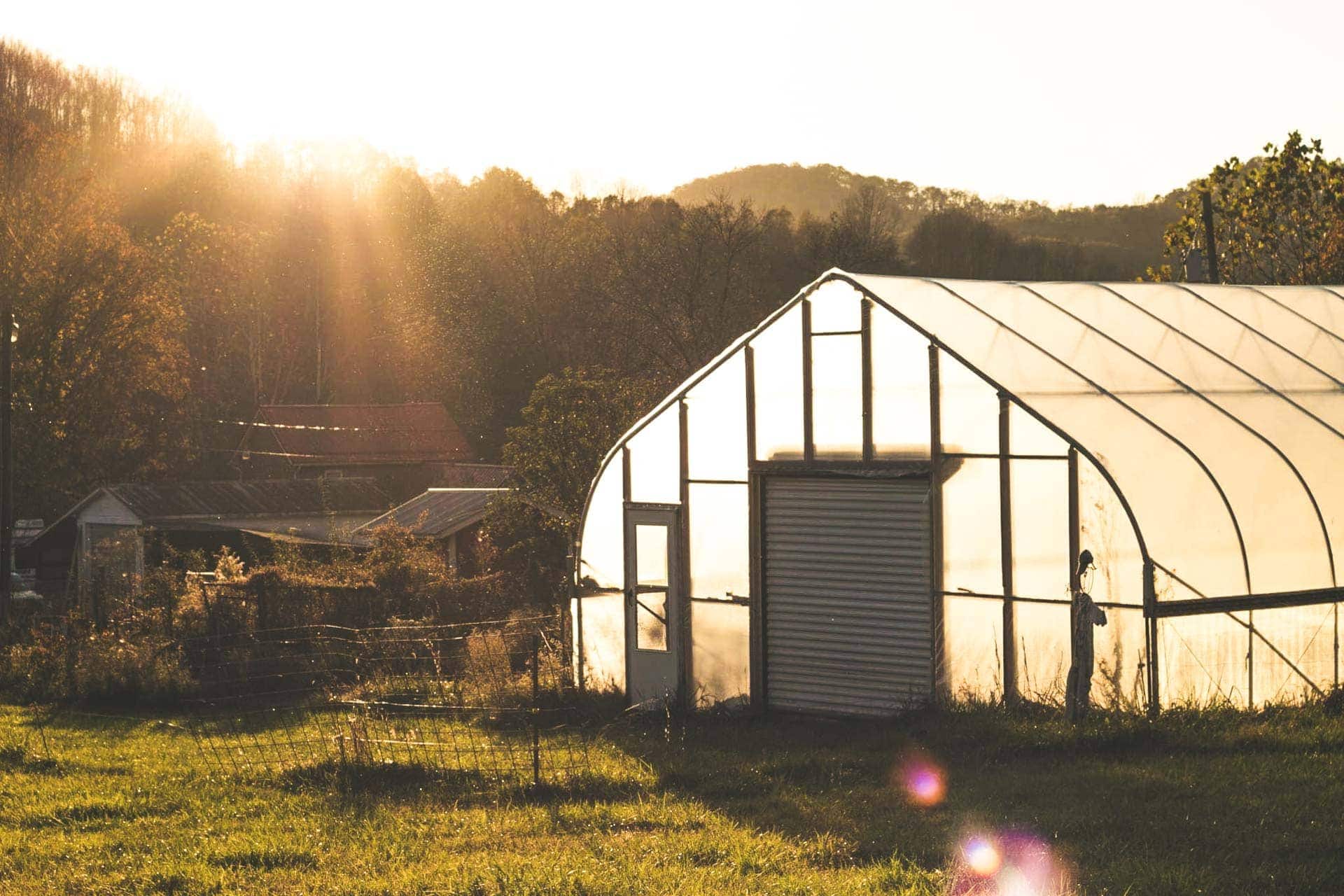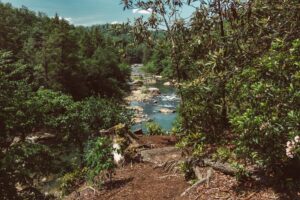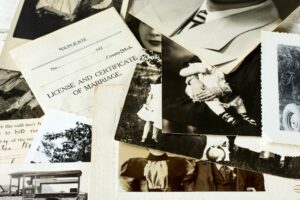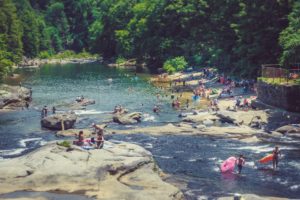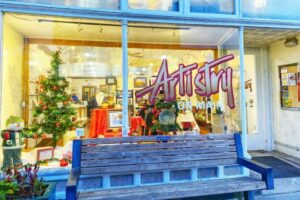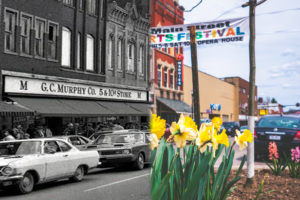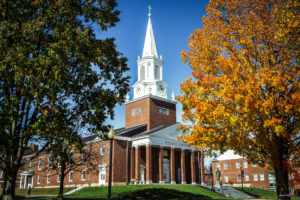BUCKHANNON – West Virginians are nothing if not self-sufficient.
That propensity to provide for yourself and your family is now blossoming in the era of a worldwide pandemic. As one Upshur County gardener, Sandra Miller, put it, “It really is a great time to go back to the basics.”
Amid the uncertainty, many north-central West Virginia residents have turned to gardening, fishing and gobbler hunting as a way not only to supply a few of the bread-and-butter basics (trout, turkey, cucumbers, squash, lettuce and more), but also as a way to find fulfillment.
They’ve found that the land, lakes and streams supply sustenance for both the body and spirit.
Gobbler hunting
Turkey hunting is a time-honored tradition in many Mountain State families, and spring gobbler season is the perfect time to spend some hours outside in the wonderful West Virginia woods.
The Stonecoal Lake Wildlife Management Area in Upshur and Lewis counties stretches across nearly 3,000 acres of forests and public land, while there’s another 250 acres in southern Upshur County in the James W. Curry Park and Brooks Hill area turkey hunters can take advantage of. Remember, hunters in Upshur County must have a valid hunting license and a permit from the Upshur County Commission to hunt in Curry Park.

Trout, crappie, muskie and bass fishing
While the Buckhannon River is famous for its muskie fishing, trout and crappie are also popular among local fisherwomen and men. Josh Balser, who lives near the Lewis-Upshur County line in Walkersville, says he often ventures over to the Upshur County side for some quality bass and crappie fishing. His favorite spot in Upshur County is Stonecoal Lake, a 550-acre freshwater lake.
Balser says he’s been fishing for as long as he can remember, with the earliest pictures of him dating back to when he was just five years old. The serene setting of lake is what makes it an ideal place to find a piece of solitude when he needs one.
“I mostly enjoy it because the lake doesn’t get much pressure and you don’t have to deal with pleasure boats like pontoons, party boats and jet skis,” Balser said. “It’s usually not crowded so you don’t have to worry. There’s a motor restriction on that lake – they only allow 9.9 horsepower or smaller.”
Balser said he’s been fishing in tournaments for more than 10 years. When he’s in his favorite spot on Stonecoal Lake, he throws back the bass but sometimes keeps the crappie for dinner later.
Ron Brady and his nephew, Chris Brady, enjoy trout fishing together, but don’t expect them to tell you (exactly) where – they have their secret spots memorized throughout the Mountain State. Julia, Ron’s wife and Chris’s aunt, says trout fishing tends to take fishers to the most beautiful, pristine places in the state.
While the tailwaters of lakes in central and north-central West Virginia — like Stonewall Jackson Lake, Burnsville Lake and Sutton Lake — are all satisfactory spots, the uncle-nephew duo prefer smaller streams, they said.
“It’s a family tradition,” Ron Brady said. “I fished the Buckhannon River with my uncle, and now I go with my nephew, Chris. We are mostly catch and release, but eating trout is a West Virginia way of life, too.”

Large and small-scale home gardening
Tennerton-area container gardener Sandra Miller enjoys gardening because fresh vegetables just taste better, and there’s always plenty to share.
Miller said she and her husband, Rob, cultivate lettuce, carrots, green beans, squash and cucumbers in her flower bed as well as in some miscellaneous containers.
“We like to garden, but we don’t have a big garden anymore, so we just started experimenting to see where different items would grow,” Sandra said. “We planted cucumbers in the flower bed last year, and those exploded and pretty well took over, so I found a recipe for freezer pickles and made a lot of pickles last year.”
“I’ve got lettuce in a brick planter where people would typically put flowers, and I’m about 10 days away from a harvest on lettuce. I have an old washtub that I plant onions in,” she said. “I also enjoy growing some rhubarb and making strawberry-rhubarb jam.”
Fresh vegetables from a home garden are jam-packed with flavor and perfect for sharing.
“I just love the harvest, and fresh vegetables are so much more flavorful – plus, I like to share with others,” Sandra said. “Most of our neighbors in this area don’t have a garden, so I like to take a few cucumbers over, or have some lettuce and onions to take to a neighbor or family member, just to share.”
Sandra said sometimes people have the misconception that you have to own a lot of land to garden, but that’s not always the case.
“You really don’t need a lot of land, depending on what you’re raising,” she said. “This year I’m going to try to grow potatoes in a garbage can because I read about how you can grow them in a garbage can or Rubbermaid tote.”
“This year has been a bartering year, where you’re asking your neighbor, ‘Do you have some flour?’ and maybe trading some vegetables, so I think it’s a great time for trading vegetables and other items from your garden,” she added.

Buckhannon native Rachel Poling lives in Lewis County on the backwaters of Stonewall Jackson Lake with her husband, Luke, and their two daughters. The four have a large garden, fruit trees, a high tunnel and a handful of goats.
“I use rotational grazing of our fields for my goats, which provide milk also,” Poling said. “We constantly use what we grow because we preserve and can the food.”
Rachel and Luke’s operation is called Stone Lakes Farm, or, as she describes it, “our little hunk of heaven nestled in the nook of Stonewall Jackson Lake and Stonecoal Lake.” They want to become as self-sufficient as possible, while having enough left to share with family and friends.
“The most satisfying thing is creating something from nothing,” Rachel said. “There is just this tiny seed you baby and raise, and that act of care provides food you can harvest. Then, as the plant is diminishing, you save the seeds and start the whole process again. You get to be part of the cycle of life from start to finish to restart.”
As locals settle into living life a bit more simply, reminding ourselves that our West Virginia land is part of who we are, we challenge you to find your own way to connect with the hills. Dream and plan of that perfect fishing spot on the river, forage for mushrooms while on a hike in the woods, plant something and watch it grow and buy produce from a local grower.
This story produced in partnership with the Upshur County Convention and Visitor’s Bureau.
